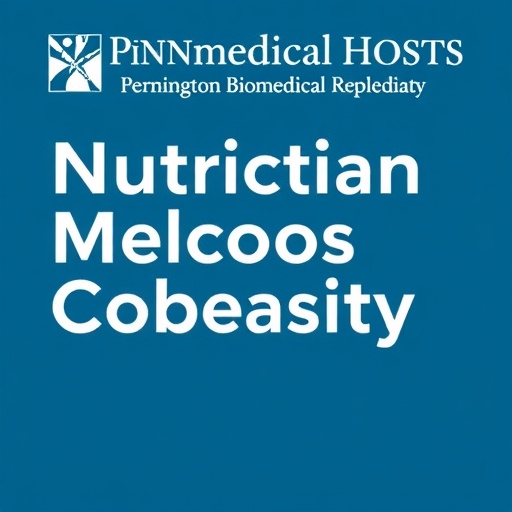Between October 6th and 9th, the Pennington Biomedical Research Center in Baton Rouge, Louisiana, served as the convening ground for an elite cadre of emerging clinical researchers during the National Institute of Diabetes and Digestive and Kidney Diseases (NIDDK) Clinical Methods for Nutrition and Obesity Research Course. This rigorous, immersive four-day program was meticulously designed to arm postdoctoral fellows, advanced doctoral candidates, and early-career scientists with hands-on proficiency in cutting-edge methodologies essential for advancing translational and clinical research in obesity, metabolism, and nutrition.
Amid a landscape where obesity continues to fuel the global epidemic of chronic diseases — including type 2 diabetes, cardiovascular disorders, and metabolic syndrome — developing expertise in precise and reproducible clinical research techniques is paramount. This course stands at the forefront of that mission by fostering skill acquisition in state-of-the-art methodologies that cannot be gleaned from traditional academic settings but require immersive, mentored experiences with leading experts in the field.
The curriculum was divided into four intensive modules, each emphasizing distinct aspects of metabolic research critical to the study of obesity and its complications. The first module revolved around advanced body composition assessment, deploying sophisticated technologies to delineate adipose tissue distribution and lean mass parameters, which serve as foundational indicators of metabolic health and disease risk. This component is essential given the diverse metabolic roles of different fat depots and their variable impact on insulin resistance.
The carbohydrate metabolism segment encompassed hyperinsulinemic-euglycemic clamp techniques—the gold standard for quantifying insulin sensitivity in vivo. Mastery of this complex protocol allows researchers to precisely evaluate glucose uptake and hepatic glucose production, pivotal in unraveling the pathophysiology of insulin resistance and diabetes. Under expert guidance, participants gained hands-on experience in implementation and interpretation, a skill seldom attainable outside elite research environments.
Exercise testing was another cornerstone of the program, focusing on methodologies to assess physical performance, cardiovascular fitness, and aerobic capacity, while also translating these assessments into tailored exercise prescriptions. Given exercise’s integral role in both preventive and therapeutic strategies for obesity-related conditions, understanding the physiological underpinnings and valid testing protocols is crucial for clinical investigators designing intervention trials.
Integral to the program was the training in measuring energy requirements and expenditure through sophisticated tools such as metabolic chambers and the doubly labeled water method. These approaches afford unparalleled precision in quantifying basal metabolic rates and total energy expenditure, indispensable metrics for elucidating energy balance dynamics in clinical populations. Participants engaged directly with these specialized modalities, enabling them to design rigorously controlled metabolic studies.
Renowned experts and faculty members from the Pennington-Louisiana Nutrition Obesity Research Center (NORC) facilitated the course, including Drs. Eric Ravussin, Steven Heymsfield, Leanne Redman, and others whose pioneering work underpins contemporary metabolic research. Their mentorship ensured that participants not only absorbed technical knowledge but also internalized best practices in study design, data collection, and interpretation—core competencies for impactful clinical research.
The cohort, representing 17 prestigious institutions across North America such as Harvard, Columbia, and the University of Toronto, engaged in dynamic workshops, live demonstrations of cutting-edge equipment, and interactive poster sessions where fellows presented their ongoing research for expert critique. These forums provided fertile ground for intellectual exchange, fostering a collaborative ethos critical for multidisciplinary advancement in metabolic science.
A particularly innovative feature was “Meet the Professors” segments, where attendees benefitted from personalized mentoring sessions focused on career development and research challenges, emphasizing the program’s commitment to nurturing the next generation of clinical investigators with bespoke guidance from established leaders in the field.
Dr. Leanne Redman, course director and Associate Executive Director for Scientific Education and Training at Pennington Biomedical, highlighted the uniqueness of the facility and the program’s hands-on approach, emphasizing that without immersion in such specialized settings, mastery of complex clinical techniques like metabolic chamber studies and clamp procedures is unattainable. According to Dr. Redman, these experiences are critical to elevating research quality beyond textbook theory into practical expertise.
Moreover, Dr. John Kirwan, Executive Director of Pennington Biomedical, emphasized the broader implications of investing in early-career scientists. He asserted that the transmission of tacit knowledge embedded in real-world clinical methodologies represents a vital pipeline for future breakthroughs. By equipping investigators with pioneering tools and protocols at the outset of their careers, the program acts as a catalyst for transformative research capable of addressing the multifaceted metabolic disease burden.
The Pennington-Louisiana NORC itself plays a strategic role in sustaining rigorous clinical investigations across the lifespan—from prenatal nutritive influences through elderly metabolic health. Its comprehensive infrastructure and core services extend beyond the center to affiliated universities, stimulating an integrated regional and national research network focusing on nutrition, metabolism, and chronic disease etiology.
Pennington Biomedical Research Center stands as a beacon in the landscape of metabolic health discovery, with over 600 employees operating within a vast network of clinics and specialized cores. The center’s ethos encompasses bench-to-bedside translation, striving to decode the molecular mechanisms of obesity, diabetes, and related disorders to innovate preventative and therapeutic modalities. Its strategic affiliation with the LSU System ensures broad institutional support and impactful dissemination of findings.
Ultimately, the NIDDK Clinical Methods for Nutrition and Obesity Research Course exemplifies a paradigm of experiential scientific education, fostering methodological rigor and collaborative excellence. As obesity and its sequelae persist as pressing global health challenges, such specialized training initiatives are critical to empowering tomorrow’s researchers with the skills and vision to pioneer impactful interventions that advance metabolic health worldwide.
Subject of Research: Clinical methods in nutrition, obesity, and metabolism research
Article Title: NIDDK Clinical Methods Course Empowers Next Generation of Metabolic Health Researchers
News Publication Date: Not specified
Web References:
https://www.pbrc.edu/research-and-faculty/centers-and-institutes/nutrition-obesity-research-center/
http://www.pbrc.edu/
Image Credits: Madison Page/PBRC
Keywords: Science education, Educational programs, Research programs, Clinical research, Translational research, Scientific facilities, Obesity, Metabolic disorders, Diabetes, Nutrition, Metabolism, Carbohydrates




